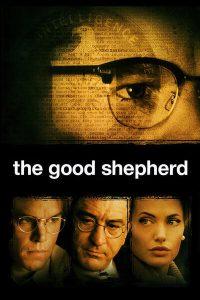Rating: 2.75 of 5 




I liked the way the story unfolded. At first I was fairly confused but I trusted that it would eventually make sense. And most of it did. But I still have questions. There were nuances and characters from the first parts that I’m not exactly sure who was who and what was really going on, underneath the plot points.
One of the reasons for this is that it’s full of intrigue. I read a lot of Robin McKinley when I was too young to understand it all because of the way she writes; she doesn’t always explain what’s happening emotionally to people, she just sort of implies it, or talks around it or talks about it. It’s something I got used to in reading her. People in this film are speaking seemingly plainly but you know they’re saying so much more than the words. They’re saying all sorts of things without saying them and I was used to it.
Except I know I didn’t get half of them 🙂
all the things I didn't understand »
To start with, I’m not entirely sure who everyone was. Hayes ended up the director – but was he the one who questioned his loyalty at the first Skull and Bones meeting? Was he the one who came to his house saying they were in the same boat? Why did Edward give him a dirty/suspicious look when he sat down with him in London with Cummings?
Also, I know there were things I didn’t get about the whole poem thing. I know that it wasn’t written by the professor. You could tell that from the look on Edward’s face when he was reciting it. But why was that so significant? How was that a sign of the professor’s betrayal of Edward? I got what happened, but at the same time there was so much in there that I missed.
And then, Monrovia or whatever the Russian’s name was…Edward knew he was fake and was using him to funnel false information? Because I got that he was the favor for Ulysses that wouldn’t cost him much but was valuable to Ulysses. Which it would make sense that if Monrovia were giving false information from the Americans to the Russians it’d be beneficial to Ulysses for him to be eliminated. And if he was really a Russian agent it wouldn’t serve Ulysses to have him dispatched. But, when the other Monrovia showed up, and we’re pretty sure he was really himself, then Edward said “I know [you are who you say you are]”, so he knew he was lying? If so then the only reason would have been to use him for false information. Right? It seems obvious but so much of it was unspoken.
Did he know Cummings was working for the Russians?
Why did he out Allan? Was it to scape goat him for the Bay of Pigs?
Why did the FBI guy help him?
And the little boy and Santa Clause, why? What was that all about?
Who took the pictures of him with Laura and why send them to his wife?
I thought it was interesting that his son never seemed to rage against him about the girl dying. Like somehow he knew something about the cost of the work and being involved with the CIA.
And I don’t understand why Clover never learned to live in that world – as miserable as it might have been, why not adapt, learn to survive, find some sort of happiness somewhere. I don’t know, just growing up the way she did you’d think she’d have figured something more out. Or maybe it’s somehow noble that she clung to the idea of a real life, real love, the hope of joy; even though clinging to it destroyed so much of her.
The nice thing about all the intrigue is that the characters were really well developed and interesting. I haven’t decided yet if it’s worth seeing again in order to understand everything better. But I also like that it wasn’t easy to understand. For me it’s the defining aspect of the film. I read a Variety review and completely agreed with the flaws they mentioned,
“Crucially missing is slowly building momentum, a firm hand on pace, a way to convey gradual moral decay and a talent for magisterial storytelling”.
If they had better handled the pacing and the gradual moral decay and if I had liked the characters or the story better then I’d love to see it again and try to figure it out. But I’m not sure it’s worth it.
| Writing: |      |
| Characters: |      |
| Performances: |      |
| Directing: |      |
| Production: |      |
| Overall: |      |



































